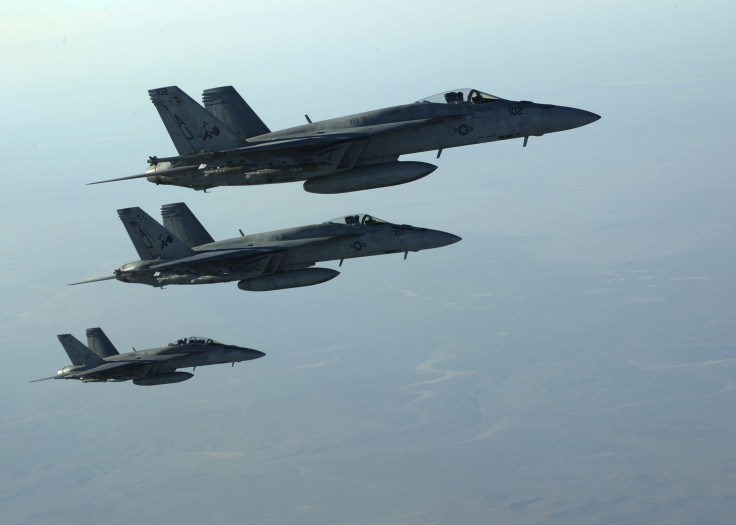Boeing Loses Super Hornet Deal With Canada To Second-Hand Australian Fighter Jets

Boeing has lost an order from Canada for 18 Super Hornet fighter jets, a deal that was worth up to $6.4 billion. The Royal Canadian Air Force (RCAF) will likely purchase 28-30 used fighter planes from the Australian military, according to reports Tuesday.
The Canadian government announced in 2016 it would purchase 18 planes from Boeing. The new F/A-18 fighter jets would have been a temporary measure for Canada, to allow the country to meet its commitments to the North Atlantic Treaty Organization (NATO) and the North American Aerospace Defense Command (NORAD). RCAF currently operates an ageing fleet of CF-18 fighters, which is due for replacement sometime in the next decade.
The U.S. plane manufacturer filed a complaint against its Canadian rival Bombardier in April 2016, accusing it of using Canadian government subsidies to win a Delta Air Lines contract for 75 aircraft. Boeing alleged that Bombardier was selling the planes at “absurdly low” prices, and the Department of Commerce imposed a preliminary 300 percent import duty on Bombardier’s CS 100 planes. The Canadian company says Boeing, which did not offer any of its own aircraft to Delta, could not have been harmed by its actions, which it maintains were in line with international rules.
The final ruling in the case is expected next year, but the relationship between Boeing and Canada has nosedived since. In August 2017, Canadian officials travelled to Australia to inspect the F/A-18 aircraft the country is planning to buy instead. Prime Minister Justin Trudeau said at the time the country would not engage in business with Boeing till such time its dispute with Bombardier continued, a sentiment he repeated to President Donald Trump in October.
Since the Australian fighter jets are almost as old as the current Canadian fleet, RCAF will reportedly need to buy some additional planes to use them for spare parts. That could explain why 28-30 of the older planes would be bought instead of 18 new ones. An official announcement is expected in the coming days.
In September, Boeing International president Marc Allen, talking to the Globe and Mail, invoked Boeing’s $4 billion worth of annual business and 17,000 jobs in Canada, and said: “If Canada kicks Boeing out, I think that will be deeply unfortunate for us both. It would be a deeply unfortunate outcome. It has to be a two-way street, there has to be this mutually beneficial relationship for it to be one that grows, one that both sides are happy and excited about.”
But the company’s thinly-veiled threat may be futile, especially in a larger political climate where Canada and Mexico are frustrated by Trump’s attempts to renegotiate long-standing trade deals.
At a conference in Boston in November, Bombardier CEO Alain Bellemare said: “Boeing is underestimating what they are tackling. It's not just the company but countries. Unfortunately, I think they're taking advantage of a [political] context that’s favorable to them.”
Shares of Boeing fell 0.86 percent during Tuesday trade on the New York Stock Exchange.
© Copyright IBTimes 2024. All rights reserved.





















